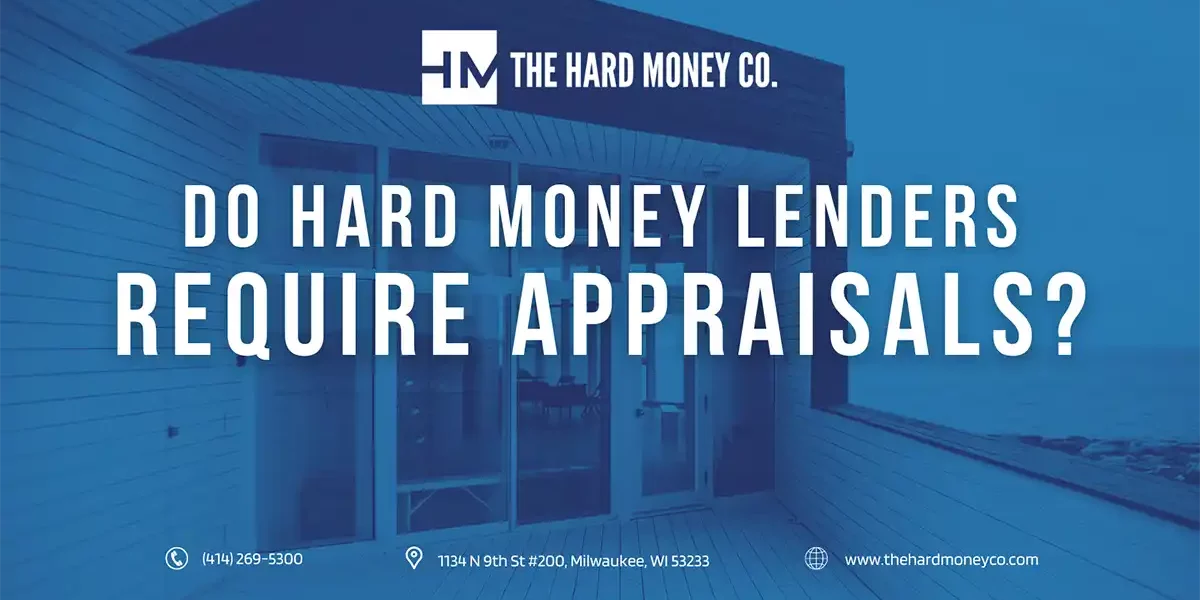Hard money loans have risen in popularity in recent years. One of the primary reasons is that it allows real estate investors to get funding on the merits of their deal. With companies like The Hard Money Co., there aren't convoluted credit checks, income verification, reporting bureaus, and a million other examples of red tape that can hang up progress. Your deal gets to stand on its own.
Do Hard Money Lenders Require Appraisals?
Still, though, the lender must have to verify. They can't just take the borrower's word on the condition of the property. This begs the question, do hard money lenders require appraisals?
The answer is no!
An appraisal refers to a specific process where a credentialed appraiser visits a property and performs a comprehensive walk-through. This can be costly and time-consuming when you're on a deadline. Most importantly, it doesn't have much value when you're going to be performing a complete renovation of the property.
At The Hard Money Co., we have never performed a conventional appraisal on an investor's property. But that's not to say we don't check to ensure that your investment has real potential. We perform our own internal comparative market analysis (CMA), but it's quick, free, and aims to establish an after repair value (ARV) rather than a current valuation.
Appraisals have their place, but not in our fast-moving world of hard money.
What is a Real Estate Appraisal?
A real estate appraisal is a method that lenders use to determine the fair market value of a property. For home purchases, it’s a beneficial process that offers transparency and value for everyone in the transaction. The typical process involves having an appraiser visit the property, and take a comprehensive look at the factors that contribute to the bottom line. They will review the number of beds, baths, and square footage while taking note of the general condition of the property. Using these factors, and many more, they will arrive at what they believe to be a fair market value for the property.
This figure is used by a wide range of people. The traditional lending institution uses it to ensure that the property has the tangible value to back up the mortgage. Both the buyer and seller use the figure to ensure their deal is fair and may even include an appraisal contingency in the initial offer. Finally, the local government uses an appraisal to determine property taxes. Notably, the appraisal valuation may differ from the market rate for the property. Consider the real estate market of recent months. Purchase prices were consistently 10-20% higher than the appraised values. The primary goal of the appraisal is to establish a neutral view of what the property is worth.
This can be relatively superficial and does not take the place of a home inspection. A home inspection is an extra security blanket where a trained and accredited inspector checks your home to ensure compliance with local regulations and verifies the condition of things such as the foundation, electrical, and plumbing for safety and liability. Appraisals are more specifically concerned with value.
What is a Comparative Market Analysis (CMA)?
A comparative Market Analysis (CMA) differs from an appraisal in that it doesn't seek to assess the value of a home as it currently sits. Imagine you are investing in a distressed asset. The roof has collapsed, the floors are destroyed, and it's tens of thousands of dollars away from being inhabitable. If a lender were to follow the opinion of an appraiser, you could never get the financing to acquire the property because they determine a price based on its current state.
Our internal CMA, however, recognizes that you are going to renovate the property and bring it to life. The valuation for our purposes is what the asset will be when you are done with those renovations. This is called the after repair value (ARV).
The CMA takes into account many of the same things as an appraiser might, but relies on a different process to achieve a final dollar amount. When a borrower is looking at a distressed asset, they communicate their vision to The Hard Money Co.'s CMA analyst. They outline the core features (beds, baths, sqft) and any additional amenities that they might be adding. The analyst will then take a look at other properties in the immediate area that have similar features and see what they've most recently sold for. Once the information is compiled, the analyst will make adjustments based on slight differences and determine their final ARV figure.
Why does this matter?
This number is important to us because it defines how much we will lend on the property. The Hard Money Co. will only finance up to 65% of the ARV on an investment property. This ensures that the property is initially obtained at a low enough price to ensure profitability. It also ensures that the investor maintains skin in the game as they perform their flip. Most importantly, it validates the investor's investment strategy. With a third-party confirmation of the after repair value, you can be confident that your plan to profit on the flip of a distressed asset will yield a profit.
It also keeps your deal moving forward. This whole process occurs within a day of application submission, meaning there are no delays with scheduling an independent appraiser and waiting for them to visit the property (to which you may not even have access). The process is free to you and establishes a baseline of communication as we fund your deal. The Hard Money Co. views our relationship with our borrowers as a partnership and we can only succeed when the borrower's deals are successful.
Please submit an application if you have questions about our process or have a deal that you'd like us to take a look at. We review every app as soon as it's submitted and will be in touch to discuss specifics at our earliest convenience.


